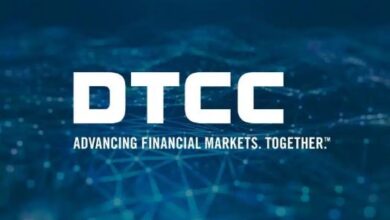Ethereum ETF Approval on the Definitive Horizon For Several Reasons, Here Is Why

The crypto industry has finally witnessed the approval of a Bitcoin spot Exchange-Traded Fund (ETF), marking a milestone that many believed would remain a farfetched goal.
As the buzz around Bitcoin ETFs settles and the price of Bitcoin plummets, attention shifts to the imminent approval of an Ethereum (ETH) spot ETF.
Contrary to the circus of delays and questionable denials that plagued the Bitcoin ETF journey, the approval for an ETH spot ETF seems not only certain, but also imminent, according to Lucas Kiely, Chief Investment Officer at Yield App.
Kiely explains that the United States Securities and Exchange Commission (SEC) now finds itself in a different position this time, with Commissioner Hester Peirce, known as “Crypto Mom,” calling out the regulator’s historical conduct in denying Bitcoin ETF applications.
In her critique published on January 10, Peirce emphasized the lack of sense in the SEC’s objections, accusing the regulator of basing its denials on prejudice against Bitcoin.
The Grayscale lawsuit ultimately ended this bias, leading to the approval of a BTC spot ETF and the accumulation of $1 billion in assets in BlackRock’s portfolio.
Therefore, Kiely highlighs that the stage is now set for Ethereum, with seven ETH spot ETF applications currently on the SEC’s desk. VanEck leads the pack with a deadline of May 23, 2024, and the securities watchdog has already initiated proceedings on their application. The upcoming deadline and the SEC’s proactive stance suggest a smoother approval process, in contrast to the hurdles faced by Bitcoin ETFs.
While liquidity remains a potential concern for Ethereum, given its transition to proof-of-stake (PoS) and the nature of its use as a working currency, the market remains optimistic about the approval in May. The approval of an ETH spot ETF not only paves the way for Ethereum, but also opens doors for various crypto-backed and linked Exchange-Traded Products (ETPs).
Kiely also touches upon the ongoing challenge of liquidity in markets as mega ETP funds absorb assets from global pension savings. However, solutions are expected to emerge as seen with the current trend of significant Bitcoin flows into Coinbase wallets to meet institutional demand.
He explains, “The liquidity issue will continue to plague almost all markets as these mega ETP funds soak up assets from the pensions savings of an aging global population, and solutions will continue to be found. Right now, in fact, we are seeing a lot of Bitcoin flowing into Coinbase wallets, which is almost certainly whales doing over-the-counter (OTC) deals to satisfy institutional demand.”
Nevertheless, the CIO notes that the question of whether ETH is a security becomes irrelevant once it becomes an ETF, as the market already boasts commodity ETFs. The 10-year struggle for a Bitcoin ETF approval, attributed to political uncertainties, now provides clarity, signaling the institutional integration of cryptocurrencies into traditional finance.
On another note, Commissioner Peirce dismisses the need for a lawsuit to push for spot Ether ETF approvals. In a recent interview, she emphasizes the SEC’s commitment to avoiding arbitrary and capricious decision-making, citing the Grayscale court ruling as a precedent, as mentioned above.
Peirce acknowledges the varying facts and circumstances with each ETF application but stresses the importance of aligning disclosures with the product’s functionality. Notable names such as BlackRock, VanEck, ARK 21Shares, Fidelity, Invesco Galaxy, Grayscale, and Hashdex are among the applicants awaiting the SEC’s approval.
Nonetheless, with all the positivity, SEC Chair Gary Gensler still emphasizes that a spot Bitcoin ETF approval doesn’t automatically signal approval for other cryptocurrency ETF applications.
As the deadline for VanEck’s application approaches in May, the crypto industry braces for the potential approval of an ETH spot ETF, anticipating a new chapter in the institutional adoption of cryptocurrencies.




